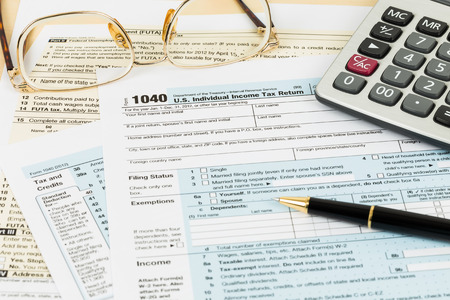A Deep Dive into Mortgage and Tax Facts
 Owning a home is a significant milestone that comes with a multitude of financial considerations. Beyond the pride of homeownership, there are substantial tax benefits and deductions available to those who embark on this journey. We will explore key facts about mortgages and taxes, focusing on the deductions, credits, and benefits that can make homeownership a financially savvy decision.
Owning a home is a significant milestone that comes with a multitude of financial considerations. Beyond the pride of homeownership, there are substantial tax benefits and deductions available to those who embark on this journey. We will explore key facts about mortgages and taxes, focusing on the deductions, credits, and benefits that can make homeownership a financially savvy decision.
Mortgage Interest Deduction: A Prime Advantage for Homeowners
One of the most notable tax benefits for homeowners is the mortgage interest deduction. This deduction allows homeowners to deduct the interest paid on their mortgage from their taxable income. The rationale behind this is to encourage homeownership by making it more financially attractive. Homeowners can typically deduct the interest paid on mortgages up to $750,000 (or $1 million if the mortgage originated before December 15, 2017).
Property Tax Deductions: Easing the Burden of Ownership
Property taxes can be a significant expense for homeowners, but the silver lining is the ability to deduct these taxes from federal income taxes. Homeowners can include state and local property taxes when calculating their itemized deductions. This deduction is particularly valuable for those living in areas with higher property tax rates.
Points Deduction: Unveiling the Cost of Financing
When securing a mortgage, homeowners often pay points to lower their interest rates. The good news is that these points can be deducted from your tax return. Each point is typically equal to 1% of the loan amount, and the deduction can be claimed in the year the mortgage was taken.
Home Office Deduction: A Workspace Within Your Sanctuary
For those who work from home, there may be an opportunity to claim a home office deduction. While there are strict criteria for eligibility, if a portion of your home is used exclusively for business purposes, you may be able to deduct related expenses, including a portion of your mortgage interest.
First-Time Homebuyer Credits: Encouraging New Entrants
Governments often provide incentives for first-time homebuyers. These can come in the form of tax credits, helping offset the upfront costs associated with purchasing a home. Be sure to explore local and federal programs that may provide financial assistance or credits for those taking their first steps into homeownership.
Energy-Efficient Upgrades: Environmentally Friendly Tax Breaks
Making eco-friendly upgrades to your home not only benefits the environment but can also lead to tax credits. Installing energy-efficient systems, such as solar panels or energy-efficient windows, may qualify you for federal and state tax credits, putting money back into your pocket.
Owning a home comes with a range of financial advantages, especially when it comes to taxes. The mortgage interest deduction, property tax deductions, and various other credits can significantly reduce the financial burden of homeownership. As you embark on this journey, it’s crucial to stay informed about the ever-changing landscape of tax laws and seek professional advice to ensure you make the most of the available benefits. In the end, the dream of homeownership can be not only emotionally rewarding but also a smart financial move.

 Whether or not to help your kids pay for their mortgage is a personal decision that depends on your financial situation, your relationship with your children, and your beliefs about financial independence.
Whether or not to help your kids pay for their mortgage is a personal decision that depends on your financial situation, your relationship with your children, and your beliefs about financial independence. Owning a home can be an exciting and rewarding experience, but it’s important to be aware of the expenses that come with homeownership. Understanding these costs can help you prepare for and manage them effectively, ensuring a smoother transition into your new home.
Owning a home can be an exciting and rewarding experience, but it’s important to be aware of the expenses that come with homeownership. Understanding these costs can help you prepare for and manage them effectively, ensuring a smoother transition into your new home. Even though owning a home comes with some significant expenses, some of them are tax-deductible. With many people looking for ways to lower their income tax, there are a few expenses tied to the house that every homeowner should consider. This could make a significant difference in their final tax bills, and it could lead to a large tax refund.
Even though owning a home comes with some significant expenses, some of them are tax-deductible. With many people looking for ways to lower their income tax, there are a few expenses tied to the house that every homeowner should consider. This could make a significant difference in their final tax bills, and it could lead to a large tax refund. When the chatter was at its peak on the 2018 tax law changes being proposed, one of the big areas of concern for homeowners was the elimination of the mortgage interest deduction. Right behind that issue was a similar treatment with regards to property tax deductions.
When the chatter was at its peak on the 2018 tax law changes being proposed, one of the big areas of concern for homeowners was the elimination of the mortgage interest deduction. Right behind that issue was a similar treatment with regards to property tax deductions.